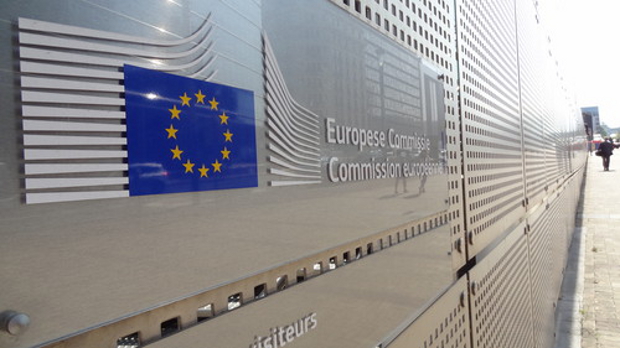
Slack’s EU antitrust complaint cites Microsoft anti-competitive Teams bundling
Slack has filed a complaint with the European Commission that accuses Microsoft of unfairly bundling its Teams collaboration app with its Office 365 suite. That move, Slack argues, allows Microsoft to abuse its market dominance to “extinguish competition in breach of European Union competition law.
“Microsoft has illegally tied its Teams product into its market-dominant Office productivity suite, force installing it for millions, blocking its removal, and hiding the true cost to enterprise customers,” Slack said.
Microsoft launched Teams three years ago, making the group collaboration application available to Office 365 subscribers. Teams has 75 million daily active users, Microsoft said this week, an increase of 31 million in the past month.
Slack’s app arrived in 2015 and has 12 million users, according to its most recent stats from October 2019.
In a statement after the legal action was announced, Microsoft pledged to work with the EU and said: “We look forward to providing additional information to the European Commission and answering any questions they may have.”
Slack CEO Stewart Butterfield has criticised Microsoft’s behaviour on numerous occasions in the past, including claims its rival has inflated user figures. Although Butterfield has said Microsoft is not a direct competitor, he told The Verge in May that Microsoft is “perhaps unhealthily preoccupied with killing us, and Teams is the vehicle to do that.”
Slack claims that Microsoft’s move to push Teams adoption is reminiscent of previous antitrust battles the software vendor has faced.
Microsoft was accused by the European Commission of bundling its Internet Explorer web browser with its Windows operating system in a 2009 case that was settled with Microsoft promising to increase access to rival platforms. Even so, Microsoft was fined €561 million in 2013 when EU regulators determined that it had not met its commitments.
“Microsoft is reverting to past behaviour,” said David Schellhase, general counsel at Slack. “They created a weak, copycat product and tied it to their dominant Office product, force installing it and blocking its removal, a carbon copy of their illegal behaviour during the ‘browser wars.’
“Slack is asking the European Commission to take swift action to ensure Microsoft cannot continue to illegally leverage its power from one market to another by bundling or tying products,” Schellhase said.
Slack said the European Commission will now review the complaint and decide whether to open a formal investigation into Microsoft’s alleged anti-competitive practices.
For its part, Microsoft said Teams has proved more popular during the pandemic because it offers videoconferencing options that Slack doesn’t have.
“We created Teams to combine the ability to collaborate with the ability to connect via video, because that’s what people want,” Microsoft said in its statement. “With COVID-19, the market has embraced Teams in record numbers while Slack suffered from its absence of video-conferencing. We’re committed to offering customers not only the best of new innovation, but a wide variety of choice in how they purchase and use the product.”
“It’s not surprising that Slack would take this action if they feel it has a high likelihood of success,” said Irwin Lazar, vice president and service director at Nemertes Research. “Stuart Butterfield has said that while they don’t view Microsoft as direct competition, they feel that Microsoft is focused on killing them, so I’d expect Slack to use all legal means that they believe they can leverage to defend themselves.”
Teams, Slack and Cisco’s Webex Teams are the most widely deployed team collaboration apps, according to a Nemertes Research survey. Cisco and Microsoft are deployed more frequently on an enterprise-wide basis, said Lazar, with Slack used more at the departmental level.
“Slack continues to set its sights on growing into an enterprise-wide alternative to Microsoft Teams and so I assume they are hopeful that success in this filing will allow them to better compete against Microsoft, potentially eliminating the ‘Teams is free with Office 365’ arguments that we hear often from adopters,” he said.
IDG News Service





Subscribers 0
Fans 0
Followers 0
Followers